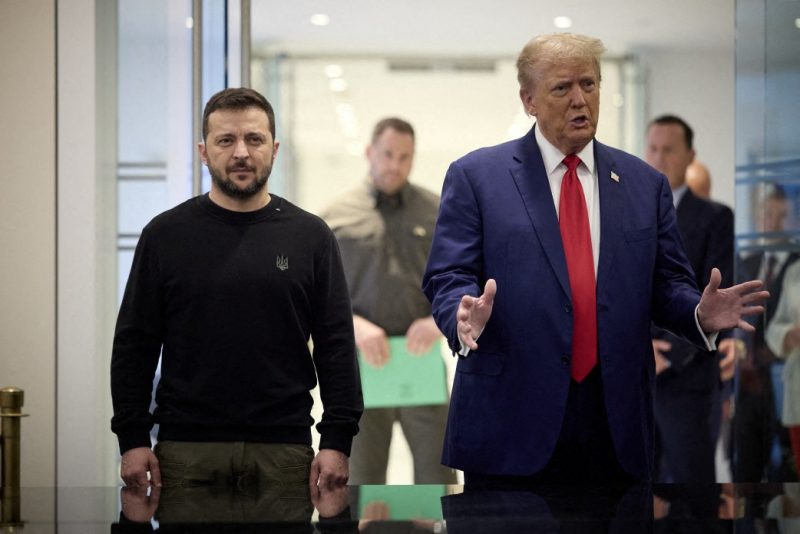In a recent turn of events, former U.S. President Donald Trump has sparked controversy by placing blame on Ukrainian President Volodymyr Zelensky for the ongoing conflict in Ukraine. This accusation has raised eyebrows across the political spectrum and stirred debate about the complexities of international relations and the role of world leaders in conflict resolution.
Trump’s assertion that Zelensky is responsible for the war in Ukraine is striking, considering the historical context of the conflict. The roots of the conflict can be traced back to Russia’s annexation of Crimea in 2014 and the subsequent support for separatist movements in Eastern Ukraine. The situation escalated into a full-blown conflict that has caused immense suffering and displacement for the Ukrainian people.
However, Trump’s decision to place blame on Zelensky rather than Russian President Vladimir Putin, who has been widely condemned for his aggressive actions in Ukraine, has been met with criticism and disbelief. Many have pointed out that Putin’s expansionist policies and military intervention in Ukraine are key factors in perpetuating the conflict, and shifting blame to Zelensky seems to deflect attention from the real instigator of the crisis.
It is essential to acknowledge the complexities of the situation in Ukraine and not oversimplify the dynamics at play. The conflict is not solely a result of actions taken by Zelensky; it is a complex geopolitical issue with deep historical roots and multiple actors involved. By singling out Zelensky, Trump risks oversimplifying the situation and ignoring the broader context of the conflict.
Moreover, Trump’s criticism of Zelensky comes at a sensitive time when Ukraine is in dire need of international support and solidarity. The Ukrainian people have been enduring the devastating consequences of the conflict for years, and placing blame on their democratically elected leader can only further undermine their struggle for peace and stability.
In conclusion, while it is crucial to hold leaders accountable for their actions, it is equally important to understand the complexities of conflicts like the one in Ukraine. Blaming Zelensky for the war overlooks the broader context of the conflict and the role of other influential actors, such as Putin. As the international community continues to seek a resolution to the crisis in Ukraine, it is essential to approach the situation with nuance and a commitment to understanding all perspectives involved.
